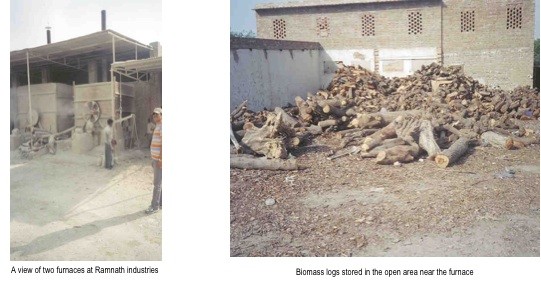 Plaster of Paris is an important productive sector in Khara industrial area. About 200 small productive units are consuming between 130 and 700 tons of wood per annum. Therefore,the Energy and Resources Institute (TERI) developed and introduced biomass gasifiers in this sector. The major objective of the project was the adaptation and standardization of the technology to the particular conditions, the installation of demonstration plants and a dissemination campaign to promote the dissemination of a cleaner and efficient energy source for an important economic cluster in Khara, India.
Plaster of Paris is an important productive sector in Khara industrial area. About 200 small productive units are consuming between 130 and 700 tons of wood per annum. Therefore,the Energy and Resources Institute (TERI) developed and introduced biomass gasifiers in this sector. The major objective of the project was the adaptation and standardization of the technology to the particular conditions, the installation of demonstration plants and a dissemination campaign to promote the dissemination of a cleaner and efficient energy source for an important economic cluster in Khara, India.
Projects with same technology
Exchange: Consolidating the Adoption of Small and Medium-Scale Biogas Technology by Livestock Farmers in Costa Rica
This exchange activity aims to implement a collaborative process seeking to (i) consolidate the use of biodigester technology in Costa Rica and (ii) accelerate the adoption of biogas solutions by small and medium-scale livestock farmers in the country.
Exchange: "Biogas for Energy" – E-Learning Platform for Latin America and the Caribbean
This SEPS exchange aims to expand the already available CIBiogás e-learning platform in order to reach a broad audience of students, technicians, officials and other practitioners from Latin America and the Caribbean.
Projects in same country
International Solar Food Processing Conference (Phase III)
Energy efficiency improvement of city street lighting in India
To demonstrate the energy saving potential which exists in city street lighting system by retrofitting a part of existing street lighting system